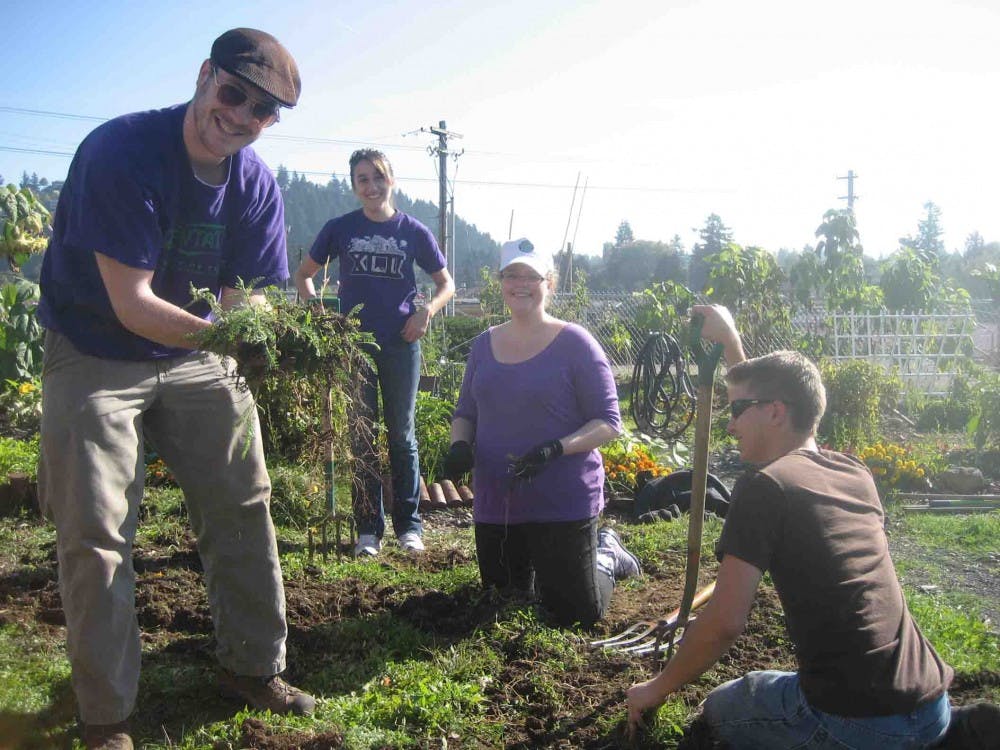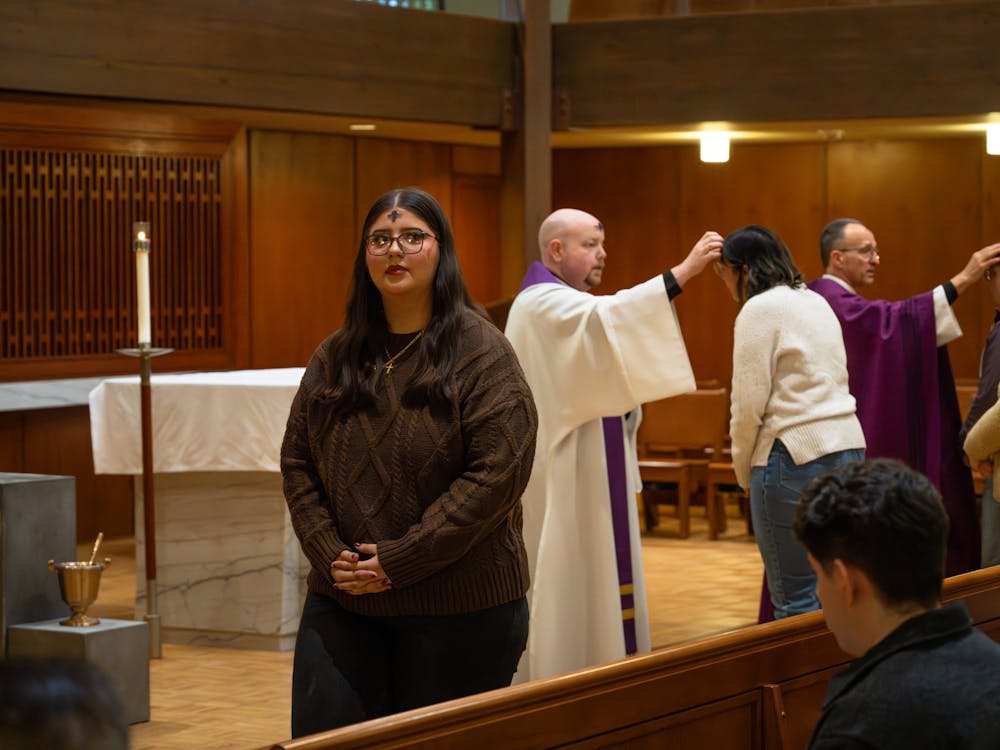(Photo courtesy of Colleen Butterfield)
By Colleen Butterfield, Guest Commentary -- The Beacon
The State of Oregon doesn't exactly conjure up a picture of widespread hunger, but that's the truth. In 2009, 76 percent of households surveyed in Oregon said they worried about where their next meal was coming from. 30 percent of households with children reported cutting or reducing the size of the child's meal. This is unacceptable but not widely known information.
Over fall break, two student coordinators, Jane Strugatsky and Erickson Marble, led the four-day Food Justice Plunge. As the AmeriCorps*VISTA, I had the pleasure of advising this program. Ten students and two accompaniers (myself and finacial aid counselor Russell Seidelman) participated in the trip.
Our focus was to learn about the food system in our local community and how it falls short for many people. Access to healthy and affordable food is a major struggle for a large population in Portland. Our local, organic, foodie culture isn't available to all. We served with a dozen different non-profits, schools and businesses to find out who isn't able to access healthy food, why and what is being done about it. Partners included Growing Gardens, Oregon Food Bank, Transition Projects, Abernethy Elementary School and Village Gardens. We served meals, built garden beds in backyards of homes, sorted over 4,000 pounds of corn at the food bank, harvested fruit and did a lot of digging in the dirt at farms and gardens around the city.
Through all that, Village Gardens was the most transformational experience for most of us. This community garden is located in New Columbia, which is a neighborhood in North Portland that has had a long history of oppression and violence. Village Gardens is a gathering space, a place where recent immigrants can continue to grow food like they did back home. It's home to a children's garden where young people can be brought up knowing where their food comes from and making healthy eating choices, a food distribution site where produce is handed out for free once a week, employment opportunities for adults and teens, after-school and summer activities for children. It's a youth-run entrepreneurial business growing and marketing specialty salad mixes at local farmers markets. We were all blown away by the creativity used to make their community a better place. We also saw resilience in action through a man named Rodolfo who came to Oregon from Cuba. He is deaf, mute and brought his 10-year-old-son. Through his hardships he is still able to be incredibly positive and good spirited. He showed us his vegetables he grows and used his own form of sign language to explain that his vegetables are the best. He even let us taste some of his vegetables, some of the spiciest and sweetest peppers I've ever had and were grown with pure love.
Students at the University of Portland sometimes find it hard to get off campus and explore their city.
One student said, "I learned a lot about community gardens. I didn't know they even existed until the plunge."
Opportunities to get off The Bluff and engage with people and places off your beaten-path help the "invisible" come into clear view.
Colleen Butterfield is an AmeriCorps*Vista for Enviromental Justice and Sustainiblity








